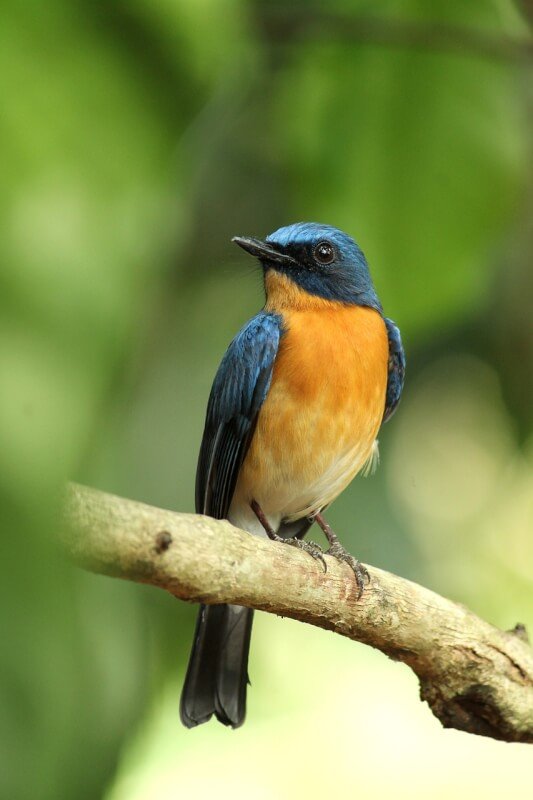Are you a proud bird owner looking for ways to ensure your feathered friend lives a stress-free life? Look no further! This article explores the best strategies to minimize stress for your bird, providing you with valuable insights and practical tips to create a calm and peaceful environment for your beloved pet. From creating a soothing ambiance in their living space to establishing a consistent routine, this article will equip you with the necessary knowledge to keep your bird happy and content. So sit back, relax, and let’s dive into the world of stress-free bird care!

Create a Calm Environment
Provide a Quiet Space
Creating a calm environment for your bird is essential to help minimize stress and promote overall well-being. Birds are highly sensitive to noise, so it’s important to provide them with a quiet space where they can feel safe and secure. Choose a location in your home that is away from areas with high foot traffic or loud noises, such as the kitchen or living room. This will help your bird feel more relaxed and minimize any potential disturbances that may cause stress.
Maintain Consistent Lighting
Consistent lighting is another crucial aspect of creating a calm environment for your bird. Birds rely on natural light cues to regulate their sleep-wake cycle, so it’s important to provide them with a consistent lighting schedule. Ensure that your bird’s cage is placed in an area with access to natural sunlight, but be cautious of direct sunlight, as it can be harmful. Additionally, consider using full-spectrum lighting to mimic natural sunlight and help maintain your bird’s circadian rhythm.
Control Temperature and Humidity
Birds are very sensitive to temperature and humidity fluctuations, so it’s vital to keep their environment within a comfortable range. The ideal temperature for most companion birds ranges between 65-85°F (18-29°C). Avoid placing their cage near drafts or air conditioning vents, as sudden changes in temperature can stress your bird. Additionally, maintain a relative humidity level between 40-60% to ensure their respiratory health. Using a humidifier or dehumidifier can help achieve the desired humidity level for your bird’s species.
Establish a Routine
Stick to Regular Feeding Times
Establishing a routine when it comes to feeding your bird is essential for their overall well-being. Birds thrive on consistency, and knowing when they will be fed helps reduce stress. Determine the appropriate feeding times for your bird’s species and stick to them as closely as possible. Consistency will not only minimize stress but also help regulate their digestion and prevent obesity or malnutrition.
Maintain a Consistent Sleep Schedule
Just like humans, birds require an adequate amount of sleep for their health and well-being. Establishing a consistent sleep schedule for your bird is crucial to minimize stress and ensure proper rest. Research the specific sleep requirements for your bird’s species and create a quiet and undisturbed environment for them to sleep in. Avoid keeping their cage in an area with excessive light or noise during their designated sleep hours.
Implement Enrichment Activities
Enrichment activities play a crucial role in keeping your bird mentally stimulated and engaged. Providing a variety of toys, puzzles, and interactive objects can help alleviate boredom and reduce stress. Rotate these enrichment items regularly to keep your bird engaged and prevent them from becoming overly familiar or bored with their surroundings. Additionally, consider providing foraging opportunities by hiding treats or food within toys or foraging boxes, which will encourage natural behaviors and mental stimulation.
Provide a Balanced Diet
Offer a Variety of Foods
Ensuring a balanced diet is vital for your bird’s overall health. Offer a variety of fresh fruits, vegetables, grains, nuts, and high-quality bird pellets to provide your bird with a well-rounded and nutritious diet. Different birds have different dietary requirements, so research what foods are appropriate for your specific bird species. Offer a mix of colors and textures to keep their diet interesting and encourage them to try new foods.
Ensure Proper Nutrition
In addition to offering a variety of foods, it’s essential to ensure that your bird is receiving all the necessary nutrients for optimal health. Some birds may require dietary supplements, such as calcium or vitamins, which can be prescribed by a veterinarian. Consult with an avian veterinarian to determine if your bird’s diet needs any additional supplementation.
Avoid Harmful Foods
While it’s important to offer a variety of foods, it’s equally important to be aware of foods that can be harmful to birds. Certain foods, such as avocado, chocolate, caffeine, alcohol, and foods high in salt or sugar, should be strictly avoided as they can be toxic to birds. Additionally, some foods may present choking hazards or contain harmful additives. Do thorough research on what foods to avoid and consult with a veterinarian if you have any concerns about your bird’s diet.
Maintain Cleanliness
Keep the Cage Clean
Maintaining a clean environment is essential for your bird’s health and well-being. Regularly clean your bird’s cage, including the perches, food bowls, and any toys or accessories they have. Remove any waste and replace the bedding or liner as frequently as necessary. A clean cage not only helps prevent the spread of bacteria and diseases but also promotes a healthy living space for your bird.
Provide Fresh Water
Clean, fresh water is crucial for your bird’s hydration and overall health. Change their water daily and ensure that it is provided in a clean container. Avoid using containers with open tops, as birds may be prone to contamination or accidental spills. Regularly clean the water dispenser to prevent the growth of harmful bacteria or algae.
Maintain Air Quality
Birds have highly efficient respiratory systems, and poor air quality can have a significant impact on their health. Avoid exposing your bird to harmful fumes from cleaning products, cigarette smoke, or aerosol sprays. Keep their environment well-ventilated and consider using air purifiers or filters to minimize contaminants in the air. Regularly check for signs of respiratory distress, such as wheezing or coughing, and consult with a veterinarian if you have any concerns.

Minimize Exposure to Potential Stressors
Limit Interaction with Other Pets
Introducing your bird to other pets, such as cats or dogs, can be stressful for both your bird and the other animals. To minimize stress, it’s essential to limit the interaction between your bird and other pets. Keep their living spaces separate and ensure that they have their own designated areas where they can feel safe and secure. If interaction is desired, always closely supervise and never leave them unsupervised.
Avoid Excessive Handling
While it’s important to spend time bonding with your bird, it’s equally important to avoid excessive handling, especially if your bird is not comfortable with it. Birds are prey animals and may view handling as a potential threat, causing them stress and anxiety. Respect your bird’s boundaries and give them time to acclimate to handling gradually. Always handle them gently and avoid any sudden or forceful movements, as this can frighten or injure them.
Reduce Loud Noises
Birds have highly sensitive hearing, and loud noises can be very stressful for them. Try to minimize exposure to loud noises, such as vacuum cleaners, blenders, or loud music, especially during your bird’s designated sleep hours. Provide a quiet and peaceful environment for your bird to relax and feel comfortable. If loud noises are unavoidable, consider covering your bird’s cage with a blanket or moving them to a quieter area of your home.
Promote Mental and Physical Stimulation
Offer Toys and Enrichment Items
To keep your bird mentally and physically stimulated, it’s important to provide them with a variety of toys and enrichment items. Birds are naturally curious and need mental stimulation to prevent boredom and promote overall well-being. Offer toys that encourage foraging behaviors, such as puzzle toys or toys with hidden treats. Additionally, provide toys that offer different textures and materials for your bird to explore.
Provide Opportunities for Exercise
Regular exercise is crucial for your bird’s physical health and helps prevent obesity and muscle atrophy. Provide opportunities for your bird to exercise by providing a spacious cage or an out-of-cage area where they can stretch their wings and explore. Offer perches at various heights and provide toys that encourage physical activity, such as swings or ladders. Regular flight or supervised outdoor time can also provide valuable exercise for your bird.
Engage in Training Sessions
Training sessions with your bird not only provide mental stimulation but also strengthen the bond between you. Birds are highly intelligent and can learn a variety of tricks and commands. Using positive reinforcement techniques, such as treats or praise, can motivate your bird to participate in training sessions. Start with simple commands, like target training or step-up, and gradually introduce more complex tricks. Training sessions should be short and frequent to prevent your bird from becoming overwhelmed or bored.

Monitor and Address Health Concerns
Regular Veterinary Check-ups
Regular veterinary check-ups are essential to monitor your bird’s overall health and detect any potential issues early on. Avian veterinarians are specialized in bird health and can provide valuable advice and guidance on proper care. Schedule routine wellness visits and follow any recommended vaccinations or tests. Regular examinations can help identify and address any health concerns before they become more significant issues.
Watch for Signs of Illness
Birds are masters at hiding signs of illness, so it’s crucial to monitor them closely for any changes in behavior or physical appearance. Watch for signs of illness, such as changes in appetite, weight loss, abnormal droppings, sneezing, wheezing, or changes in feather quality. Any concerning symptoms should be promptly addressed by a veterinarian. Familiarize yourself with common diseases or health conditions that can affect your bird’s species to be better prepared to recognize potential problems.
Administer Medication or Treatment as Prescribed
If your bird requires medication or treatment for a specific health condition, it’s essential to strictly follow the veterinarian’s instructions. Administer medications as prescribed and complete the full course of treatment, even if your bird appears to be improving. Avoid self-medication or using medications meant for other animals, as birds have unique physiology and may respond differently to certain substances. Always consult with an avian veterinarian for appropriate medications and dosages.
Consider Companion Birds
Introduce a Friend
Birds are social creatures and may benefit from having a companion bird. Introducing a friend can provide your bird with mental and social stimulation, reducing stress and loneliness. However, it’s important to research and understand your bird’s species and their compatibility with potential companions. Not all birds get along, so consult with an avian veterinarian or a reputable breeder to find a suitable companion for your bird.
Provide Social Interaction
If introducing a companion bird is not feasible, it’s crucial to provide your bird with social interaction. Birds are highly social animals and require stimulation and companionship from their human caregivers. Spend quality time with your bird by talking to them, singing, or engaging in interactive play. Avoid leaving your bird alone for extended periods and ensure that they have plenty of mental and social stimulation in your absence.
Avoid Isolation
Isolation can be incredibly stressful for birds, so it’s important to avoid leaving them alone for long periods. Birds are highly social animals and thrive in the presence of others. If you need to be away from home for an extended period, consider arranging for a trusted friend or family member to check in on your bird or consider engaging a professional pet sitter. Ensure that your bird has enough social interaction and mental stimulation to prevent feelings of isolation and loneliness.

Establish Trust and Bonding
Spend Quality Time Together
Building trust and bonding with your bird is crucial for their overall well-being and helps minimize stress. Spend quality time together by talking to your bird, offering treats, and engaging in gentle physical contact, such as gentle head scratches or stroking. Take the time to observe your bird’s body language and respond accordingly. Patience and consistency are key in developing a strong bond with your bird.
Use Positive Reinforcement
Positive reinforcement is essential in establishing trust and training your bird. Reward your bird with treats, praise, or their favorite toys when they exhibit desired behaviors. Positive reinforcement helps create positive associations and encourages your bird to repeat those behaviors. Avoid using punishment or negative reinforcement techniques, as they can cause fear, stress, and damage the trust you’ve worked so hard to build.
Avoid Punishment Techniques
Birds are highly sensitive creatures, and punishment techniques can cause significant stress and harm. Avoid yelling, physical punishment, or any form of negative reinforcement. Birds respond best to positive reinforcement techniques, such as treats, praise, or clicker training. Create a safe and nurturing environment where your bird feels loved, respected, and secure.
Create a Comfortable Sleeping Environment
Provide a Safe Sleeping Space
Sleep is vital for your bird’s health and well-being. Birds require a quiet and safe sleeping space where they can feel secure and comfortable. Provide a cozy sleeping enclosure within their cage, such as a covered wooden nest box or a snug hut. Ensure that the sleeping space is well-insulated to reduce external disturbances and provide a sense of security. Pay attention to the temperature and humidity levels in their sleeping area, as birds can be especially sensitive during sleep.
Reduce External Disturbances
To help your bird achieve quality sleep, it’s crucial to minimize external disturbances during their designated sleep hours. Ensure their sleeping space is located in an area with minimal foot traffic or noise, such as a quiet corner of your home. Dim the lights or cover their cage with a breathable cloth or blanket to create a dark and quiet sleep environment. Avoid sudden noises or disruptions that may startle or wake your bird during their sleep.
Use Covers or Nesting Materials
Some birds prefer additional coverage or nesting materials to feel secure during sleep. Providing a light cover or nest-like materials, such as appropriate bedding, shredded paper or fabric strips, can offer your bird an added sense of security. However, it’s important to ensure that these materials are safe and do not present a choking or entanglement hazard. Monitor your bird closely to ensure they are not excessively chewing or ingesting nesting materials.
Creating a calm and stress-free environment for your bird requires attention to detail and understanding their unique needs. By implementing the strategies outlined above, you can help minimize stress, promote a healthy lifestyle, and strengthen the bond between you and your feathered friend. Remember, birds are highly sensitive creatures, and treating them with kindness, patience, and love will go a long way in ensuring their happiness and well-being.



